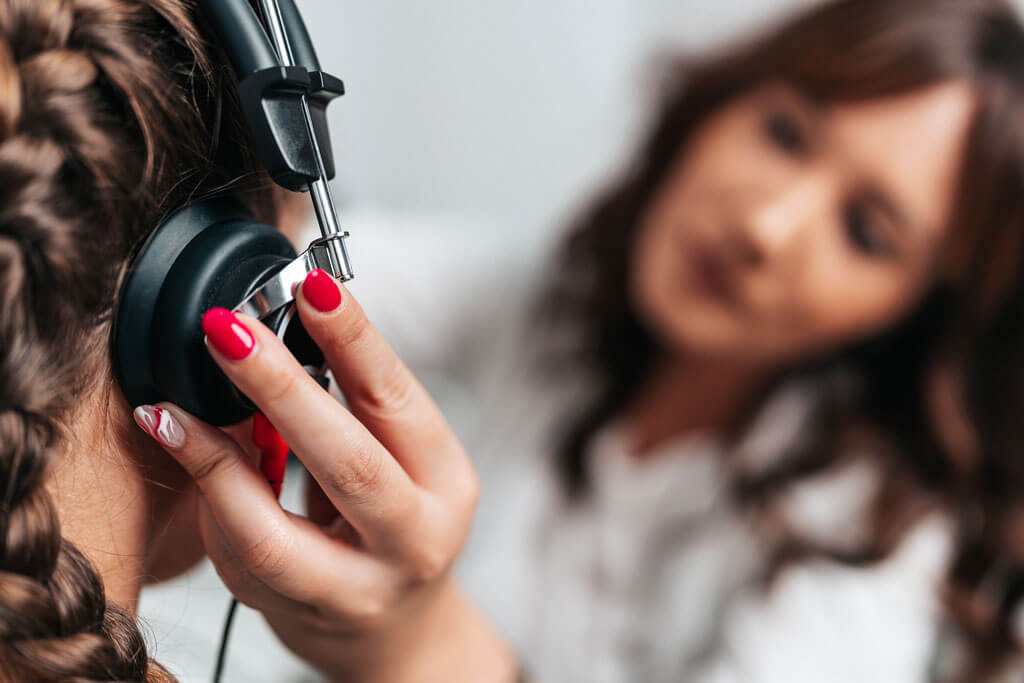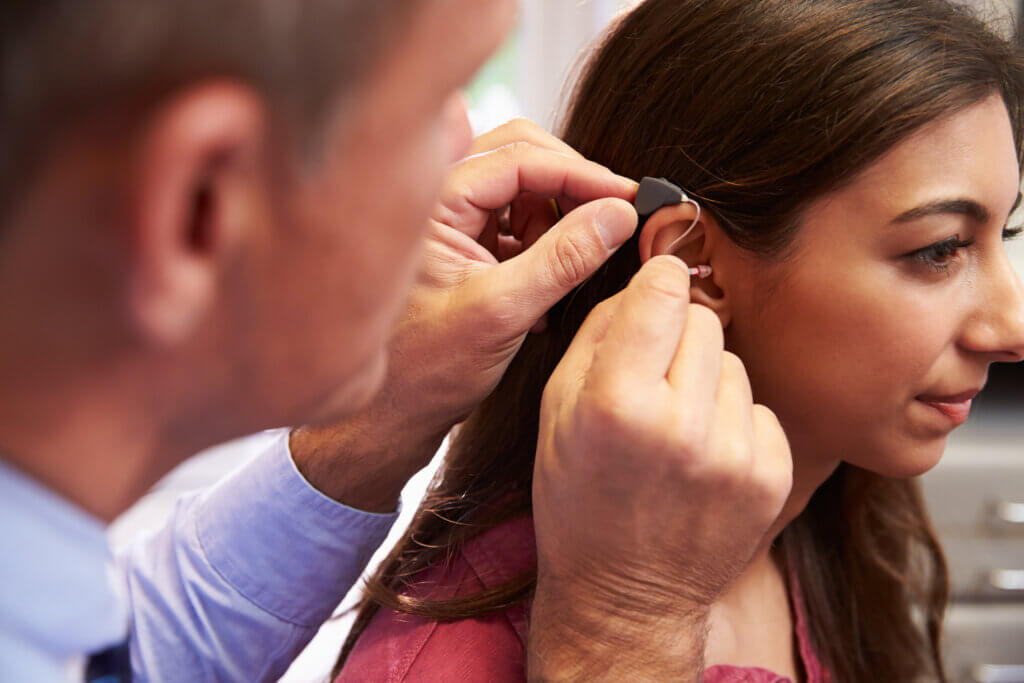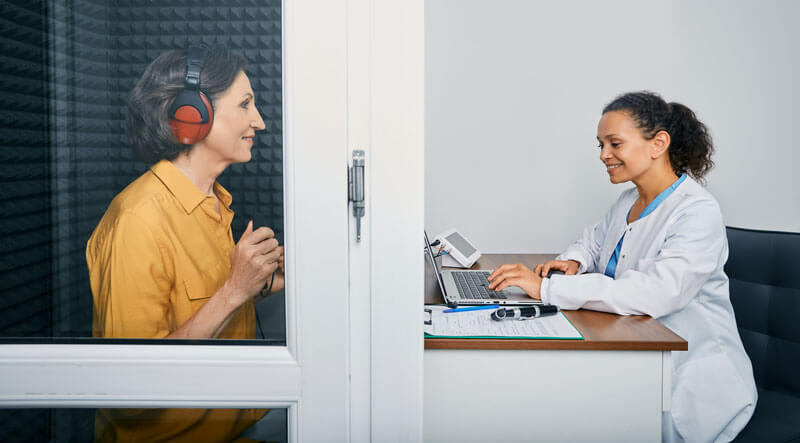
We are slowly getting back out and enjoying activities with groups of people, like dining out in restaurants, attending church services, and going to parties or conferences. While it’s fun to return to pre-pandemic life and enjoy one another’s company, frequenting these types of environments also can be noisy and distracting, especially if you have hearing loss.
Fortunately, there are some simple things you can do to improve the odds that you can hear better in background noise conditions. These tips can help your interactions be successful whether your hearing is normal, or you wear hearing aids. They include the following:
- Stay close. Being able to hear your conversation partner usually requires you to be fairly close, say not more than a couple of feet away. Don’t try to have a conversation when someone is in another room. This is usually a frustrating interaction destined to fail. In addition, face one another so you can see the other person you are talking with. By being able to see the other person’s face, you can read their facial expressions, and possibly their lips. This gives context to the conversation and can be a great help in crowded environments.
- Keep acoustics in mind. Though we usually don’t think about it, public spaces, like restaurants and meeting rooms, often are not very user friendly for individuals who have problems hearing. Many have floors made of hard surfaces, like wood, tile or laminates, very few curtains or window coverings, and metal or wood chairs. All of this produces reverberation of the sound making it more difficult to understand the spoken words.
- Limit background noise, if possible. You’ve probably noticed if you arrive at a restaurant or party early, you don’t have problems hearing. But as the room fills up, voices get louder and louder as people try to make themselves heard, plus there are other noises that contribute—dishes clanking, doors opening and closing, and sometimes music. All that can add up to “noise clutter” that’s tough to overcome, even for those without hearing loss. There are some strategies that can help though. For example, keep the person you are listening to closest to your good ear, if you have one. Ask to be seated as far away as possible from noisy spots, like the kitchen or high-traffic areas, like the front door. Again, stay close to your conversation partner, making eye contact. And try to visit spots with good lighting. This also helps you see your partner’s face and pick up on visual cues.
Avoid the above triple threat. Try not to put yourself in a position where your conversation partner is far away, the acoustics are poor and there’s lots of background noise. That triple threat will make it tough for anyone to hear.
Instead, plan ahead by using these tips, plus try to select venues that are less crowded, or go at times when they aren’t as busy. By doing these things, you increase the odds that you’ll have a better listening experience.
In addition to these strategies, if you frequently find yourself in situations with lots of background noise, you may want to talk with an audiologist about using a tabletop mic. This is a type of FM system that can pick up everyone at the table who is speaking while limiting background noise. Thus, if you find yourself struggling to hear, or you would like more information, the first step is to contact the Hearing Institute of Ontario and get a comprehensive hearing test and hearing aid evaluation. We look forward to supporting you throughout your hearing journey.
Instead, plan ahead by using these tips, plus try to select venues that are less crowded, or go at times when they aren’t as busy. By doing these things, you increase the odds that you’ll have a better listening experience.
In addition to these strategies, if you frequently find yourself in situations with lots of background noise, you may want to talk with an audiologist about using a tabletop mic. This is a type of FM system that can pick up everyone at the table who is speaking while limiting background noise. Thus, if you find yourself struggling to hear, or you would like more information, the first step is to contact the Hearing Institute of Ontario and get a comprehensive hearing test and hearing aid evaluation. We look forward to supporting you throughout your hearing journey.









